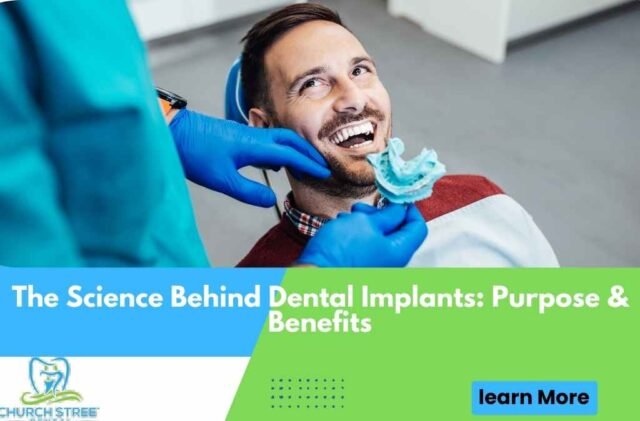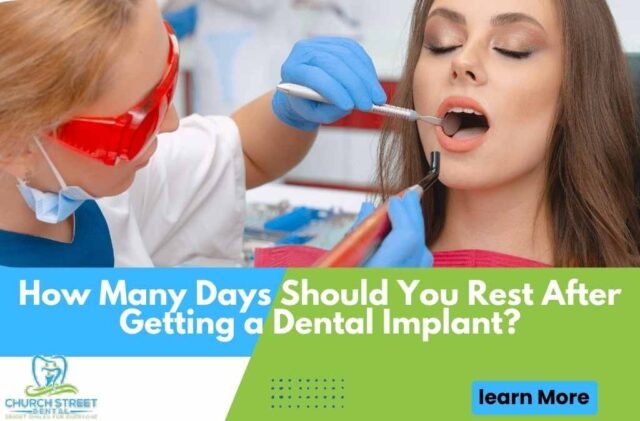When it comes to replacing missing teeth, dental implants are often considered the best option. They provide a permanent solution that looks and feels like natural teeth. However, one common question many patients have is: “How soon after an extraction can I get a dental implant?” This article will explore the timing and process of getting dental implants after extraction, the costs involved, and how to choose the right specialist in Chicopee, MA.
Understanding Dental Implants
Dental implants are artificial tooth roots made of titanium that are surgically placed into the jawbone. They provide a strong foundation for fixed or removable replacement teeth that are designed to match your natural teeth.
What Are Dental Implants?
Dental implants are essentially replacement tooth roots. They provide a strong foundation for either fixed or removable replacement teeth. The implants themselves are tiny titanium posts that are surgically placed into the jawbone where teeth are missing. This metal anchor acts as a substitute for the tooth root and provides a permanent base for attaching artificial teeth.
Benefits of Dental Implants
There are numerous benefits to choosing dental implants over other tooth replacement options:
- Improved Appearance: Dental implants look and feel like your own teeth. And because they are designed to fuse with bone, they become permanent.
- Improved Speech: With poor-fitting dentures, the teeth can slip within the mouth, causing you to mumble or slur your words. Dental implants allow you to speak without the worry that teeth might slip.
- Improved Comfort: Because they become part of you, implants eliminate the discomfort of removable dentures.
- Easier Eating: Sliding dentures can make chewing difficult. Dental implants function like your own teeth, allowing you to eat your favourite foods with confidence and without pain.
- Improved Self-Esteem: Dental implants can give you back your smile and help you feel better about yourself.
- Improved Oral Health: Dental implants don’t require reducing other teeth, as a tooth-supported bridge does. Because nearby teeth are not altered to support the implant, more of your own teeth are left intact, improving long-term oral health. Individual implants also allow easier access between teeth, improving oral hygiene.
- Durability: Implants are very durable and will last many years. With good care, many implants last a lifetime.
- Convenience: Removable dentures are just that: removable. Dental implants eliminate the embarrassing inconvenience of removing dentures, as well as the need for messy adhesives to keep them in place.
Types of Dental Implants
There are several types of dental implants to consider, including:
- Endosteal Implants: These are surgically implanted directly into the jawbone. Once the surrounding gum tissue has healed, a second surgery is needed to connect a post to the original implant. Finally, an artificial tooth (or teeth) is attached to the post.
- Subperiosteal Implants: These consist of a metal frame that is fitted onto the jawbone just below the gum tissue. As the gums heal, the frame becomes fixed to the jawbone. Posts, which are attached to the frame, protrude through the gums. Artificial teeth are then mounted to the posts.
Understanding the basics of dental implants is the first step in determining if they are the right solution for you. Next, let’s delve into the timing and process of getting dental implants after an extraction.
Timing for Dental Implants After Extraction
One of the most important considerations when planning for dental implants is timing. How soon after an extraction can you get a dental implant? The answer varies depending on several factors, including your overall health, the condition of your jawbone, and whether any infection is present.
Immediate Implant Placement
In some cases, it is possible to place the implant immediately after tooth extraction. This process is known as immediate implant placement. Immediate implants can be a good option if you have a healthy jawbone and no signs of infection. The advantage of this approach is that it reduces the number of surgical procedures and can shorten the overall treatment time.
Early Implant Placement
Early implant placement typically occurs within two to three months after extraction. This allows time for the soft tissues to heal but not so much time for the bone to start to deteriorate. This approach can provide a balance between the speed of treatment and the stability of the implant.
Delayed Implant Placement
Delayed implant placement occurs three months or more after extraction. This is often necessary if there is significant bone loss or if you have an infection that needs to be resolved first. During this time, the bone can heal and regenerate, providing a more solid foundation for the implant.
Factors Influencing the Timing
Several factors can influence the timing of your dental implant placement:
- Bone Health: If your jawbone is not healthy enough to support an implant, you may need a bone graft before the implant can be placed.
- Gum Health: Healthy gums are essential for supporting the new implant. Any gum disease must be treated before implant surgery.
- Overall Health: Certain medical conditions, such as diabetes or autoimmune diseases, can affect healing and may require additional precautions.
- Smoking: Smoking can interfere with healing and increase the risk of implant failure. It is often recommended to stop smoking before and after the procedure.
Understanding these timing options and factors can help you make an informed decision about when to proceed with dental implants. Now, let’s discuss the costs involved.
Cost of Dental Implants in Chicopee
The cost of dental implants can vary widely depending on several factors, including the type of implant, the complexity of the procedure, and the specific dental clinic you choose.
Factors Affecting the Cost of Dental Implants
Several factors can influence the cost of dental implants:
- Number of Implants: The more implants you need, the higher the cost.
- Type of Implant: Different types of implants and materials can have different costs.
- Location: The cost of dental services can vary by location.
- Additional Procedures: Additional procedures, such as bone grafts or sinus lifts, can increase the overall cost.
Dental Implant Cost in Chicopee MA
In Chicopee, the cost of a single dental implant can range from $3,000 to $5,000. This includes the implant, abutment, and crown. However, the final cost can be higher if additional procedures are needed.
Insurance and Financing Options
Many dental insurance plans do not cover the full cost of dental implants, but they may cover a portion of the procedure. It is important to check with your insurance provider to understand your coverage. Additionally, many dental clinics offer financing options to help make the cost more manageable.
Comparing Costs of Dental Implants in Chicopee
When comparing costs, it’s important to consider the overall value, not just the price. Look for a dental clinic that offers high-quality implants, experienced specialists, and excellent patient care. In Chicopee, Church Street Dental is known for providing top-rated dental implants at competitive prices.
Choosing a Dental Implant Specialist in Chicopee
Choosing the right dental implant specialist is crucial to the success of your implant procedure. Here are some tips to help you find the best dental implant dentist in Chicopee.
Qualities of a Good Dental Implant Specialist
When looking for a dental implant specialist, consider the following qualities:
- Experience: Look for a dentist with extensive experience in placing dental implants.
- Training: Make sure the dentist has specialized training in implant dentistry.
- Reputation: Check patient reviews and testimonials to gauge the dentist’s reputation.
- Technology: Look for a clinic that uses the latest technology and techniques.
Questions to Ask Your Dental Implant Dentist
Before choosing a dental implant specialist, ask these questions:
- How many dental implants have you placed?
- What is your success rate with dental implants?
- What type of implants do you use?
- What is the estimated cost of my treatment?
- What is the expected timeline for my treatment?
Patient Reviews and Testimonials
Patient reviews, and testimonials can provide valuable insights into the quality of care provided by a dental clinic. Look for reviews that mention the dentist’s expertise, the quality of the implants, and the overall patient experience.
How to Find the Best Dental Implant Dentist in Chicopee
To find the best dental implant dentist in Chicopee, consider the following steps:
- Research Online: Use online resources to research dental implant specialists in your area.
- Ask for Recommendations: Ask friends, family, or your general dentist for recommendations.
- Schedule Consultations: Schedule consultations with multiple dentists to compare their expertise, approach, and pricing.
Dental Implant Services Available in Chicopee
In Chicopee, there are several dental clinics offering a wide range of dental implant services. Here are some of the services you can expect to find.
Overview of Dental Implant Services
Dental implant services typically include:
- Consultation and Planning: A thorough examination and treatment plan.
- Surgical Placement of Implants: The surgical procedure to place the implants in the jawbone.
- Abutment Placement: Once the implant has integrated with the bone, an abutment is placed.
- Crown Placement: The final step involves placing the artificial tooth (crown) on the abutment.
Specialized Services and Technologies
Many dental clinics in Chicopee offer specialized services and technologies to enhance the dental implant process, including:
- 3D Imaging and Planning: Advanced imaging techniques for precise planning and placement of implants.
- Guided Implant Surgery: Using computer-guided technology to ensure accurate placement.
- Bone Grafting: Procedures to enhance the bone structure if necessary.
- Immediate Load Implants: Same-day dental implants allow you to leave the clinic with a temporary crown on the same day as the implant placement.
Maintenance and Aftercare of Dental Implants
Proper maintenance and aftercare are essential for the long-term success of dental implants. This includes regular dental check-ups, good oral hygiene, and avoiding habits that can damage the implants, such as smoking.
Success Rates and Patient Satisfaction
Dental implants have a high success rate, typically around 95%. Patient satisfaction is also very high, with many patients reporting improved quality of life and confidence after getting dental implants.
Conclusion
Dental implants are a fantastic option for replacing missing teeth, offering a permanent solution that looks and feels like natural teeth. The timing of implant placement after extraction can vary, but with proper planning and care, dental implants can provide a long-lasting solution. In Chicopee, you have access to top-rated dental implant services with experienced specialists and advanced technologies to ensure the best possible outcome.
At Church Street Dental, we offer a wide range of dental services, including dental implants. Whether you need a single implant or a full mouth restoration, our team is here to help you achieve a healthy, beautiful smile. Contact us today to schedule your consultation and learn more about our dental implant services in Chicopee, MA.






